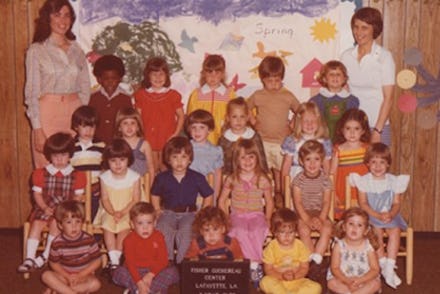The Average White American Has Almost No Black Friends, Depressing Research Finds

The news: It's not uncommon for white people to deflect accusations of racism with the cry, "I'm not racist – I have black friends!"
Yet according to new data, "friends" is an overstatement. Christopher Ingraham of the Washington Post has assembled a graph illustrating how many black friends the average white American actually has, citing research from Robert P. Jones of the Public Religion Research Institute.
The number? Try "one."
Image Credit: Christopher Ingraham/Washington Post
One. Black. Friend.
How it breaks down: Writing at the Atlantic, Jones claims a staggering 75% of white Americans have zero minority presence in their social circles.
Those with some fare just slightly better: On top of the black friend, average whites claim one Hispanic friend, an Asian or Pacific Islander, one each of "mixed" or "other" background, and three "don't knows" (meaning they're probably not actually your friends).
The study calculates these figures per 100. All told, it indicates an average white friend group that's an astounding 91% white.
Image Credit: Tanner Colby/Salon
Why? Jones and Ingraham point to a number of factors behind this phenomenon.
Jones suggests "self-segregation," or that whites limit their social interactions – especially discussions of "important matters" – to other white people. This is different among blacks and Hispanics, albeit just slightly: 65% of black Americans report having only blacks friends, while just 46% of Hispanics have only Hispanic friends.
Black Americans on average claim eight white friends, two Latinos, zero Asians, three "mixed," one "other" and four unknowns. Ingraham adds elements like population count to the mix – i.e. there are more white people in America overall, therefore it follows that a person would have more white friends – in addition to "self-segregation," or "sorting," among blacks.
But both writers miss an important factor: Actual segregation.
Geographical divides between white and black Americans are a defining characteristic of most U.S. cities. What's more, it's intentional: Decades of discriminatory housing policy and concentrated poverty imposed by the government have ensured large numbers of black people stay as isolated from mainstream society as possible.
Color-coded map of Chicago, Ill./Image Credit: Flickr via Business Insider (Key: red = white, blue = black, orange = Hispanic, green = Asian, yellow = other)
White flight exacerbates matters, while racist hiring practices ensure workplaces remain similarly divided. All things considered, it's no surprise that "it's so hard for whites to understand [police violence in] Ferguson," or other race related topics, to quote the Atlantic.
The takeaway: In a trailer for the upcoming film Dear White People, radio host Samantha White (Tessa Thompson) opines sarcastically, "The minimum requirement of black friends needed to not seem racist has just been raised to two."
She may be more right than she knows. The statistical accuracy of her statement is a primary reason for nationwide gaps in understanding around racial issues, especially among white people -- a sign that America still has a ways before reaching the "post-racial" status so many desire.
h/t Washington Post